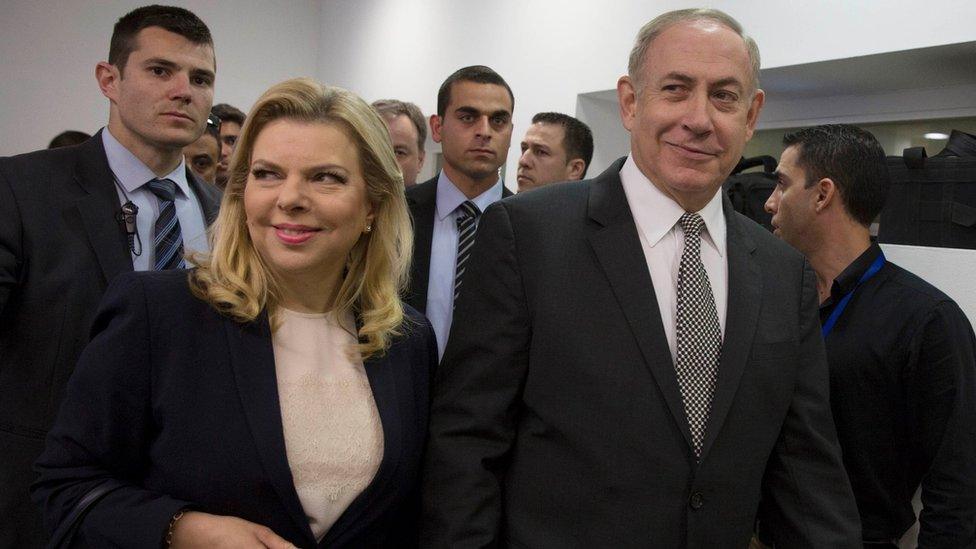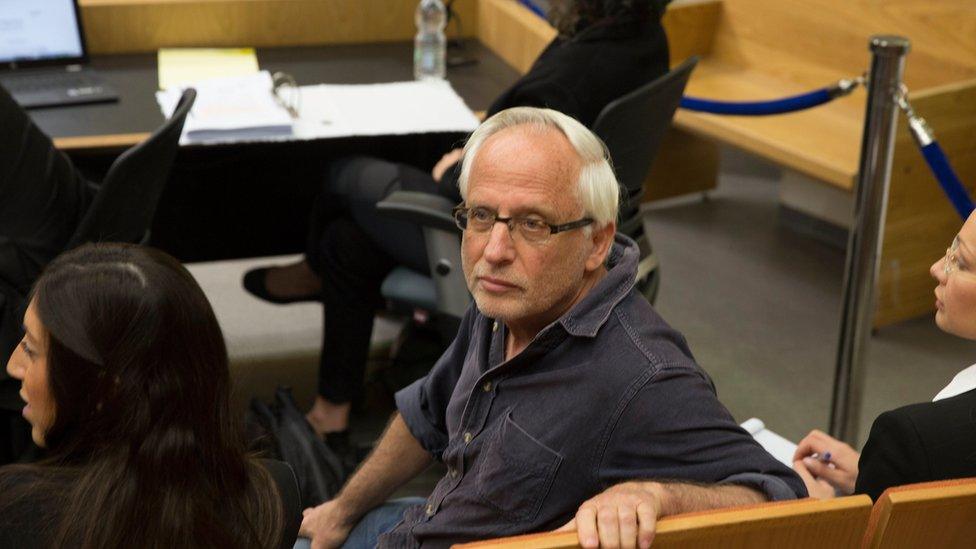Netanyahu denies claim he was ejected from convoy by wife
- Published

Benjamin Netanyahu and his wife Sara are seeking $76,400 in damages
Israeli Prime Minister Benjamin Netanyahu has denied a journalist's claim that his wife once threw him out of a car in a convoy during a row.
Igal Sarna wrote on Facebook two years ago that Sara Netanyahu had stopped the prime minister's fleet on a highway one night and ejected her husband.
But at the start of a libel case on Tuesday, Mr Netanyahu told a court that the journalist's post was a "lie".
Mr Sarna has insisted it was "entirely true" and based on "reliable sources".
The Netanyahus are seeking 280,000 shekels ($76,400; £69,200) in damages.
The couple accuse Mr Sarna of committing an injustice against them in a manner that was "disgusting, cynical, low, mean and inordinate" and intended to "shame... revile them and embarrass them publicly", according to Haaretz newspaper, external.
The journalist, who works for Yediot Aharonot newspaper, wrote that the prime minister's convoy had stopped on the Tel Aviv-Jerusalem highway. He said that "a not-so-young man" was "ejected in the dark, with shouts" because "one woman doesn't want him to remain with her in the car".

Igal Sarna has insisted the story was "entirely true" and based on "reliable sources"
"Everything that Sarna said was a lie," Haaretz quoted Mr Netanyahu as telling the court. "Anyone who knows anything about motorcade security knows that something like that cannot happen."
Mrs Netanyahu testified that while she had had fights with her husband over the years, she could not recall a single instance in which one had taken place in the prime minister's convoy.
Mr Sarna's lawyer asked why she had not sued other journalists for writing allegedly untrue stories.
"If I had to sue over every lie that was said about me for the last 20 years, I would have had to be in court every day, every hour, every minute," she replied.
Haaretz reported that when asked if he still stood by the story, Mr Sarna testified: "Today more than ever."
He said he had been made aware of the alleged incident through several people, including a member of the prime minister's security detail, and that he had attempted to verify their accounts.
He declined to identify his sources, however, and told the court that he they were refusing to testify in his defence because they were "afraid".
- Published21 November 2024
